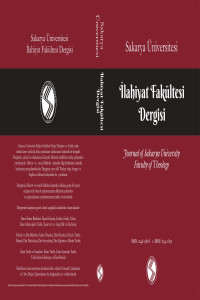Abstract
In what can only be described as a short life of 39 years, Blaise Pascal achieved more than most people could hope to accomplish in two lifetimes. He collected his ideas on psychology and religion after a mystical experience, but he died without being able to compile them into a book. After this experience, Pascal chose to be a polemicist, a pedagogue, and a preacher rather than a philosopher, mathematician, or scientist. Not only did his Thoughts (Pensees) bring new perspectives to the Christian religion, but it is also considered among the best of French literature. One of the central strategies of the Thoughts was to drive the unbeliever to a state of despair and confusion that would lead him to God and faith, using the contradictory philosophies of skepticism and stoicism personified by Montaigne on the one hand and Epictetus on the other. Hence, some of the Thoughts bear a skeptical quality, while others have the spirit of dogmatic stoicism. In fact, Pascal seeks to accommodate both poles. He exalts faith and states that the heart has reasons unknown to the intellect while denigrating the intellect and condemning rational philosophy. Pascal is one of the authors who can and should be re-examined by people in every generation. In his writings, he tries to elucidate man and man's condition in the world, his place in intellectual history and his conceptions of culture and education, the further development of his view of human nature in the light of man's relationship with God, and his famous theory of Pascal's Wager and his insights into the heart. Reflecting on one's existence in the world and having the right attitude towards it is central to every person's life.
Keywords
History of Philosophy Pascal Grace Pensées Wretchedness Human
References
- Bouchilloux, Hélène. “Pascal and The Social World”. The Cambridge Companion to Pascal. ed. Nicholas Hammond. 201-215. Cambridge: Cambridge University Press, 2003.
- Bourdieu, Pierre. Akademik Aklın Eleştirisi (Pascalca Düşünme Çabaları). çev. Burcu Yalım. İstanbul: Metis Yayınları, 2. Baskı, 2016.
- Chevalier, Jacques. Pascal. çev. Mehmet Toprak. İstanbul: Milli Eğitim Basımevi, 1961.
- Droit, Roger-Pol. Kısa Felsefe Tarihi. çev. İsmail Yerguz. İstanbul: Say Yayınları, 2013.
- Ferry, Luc. Gençler İçin Batı Felsefesi. çev. Devrim Çetinkasap. İstanbul: İş Bankası Yayınları, 2008.
- Force, Pierre. “Pascal and Philosophical Method”. The Cambridge Companion to Pascal. ed. Nicholas Hammond. 216-234. Cambridge: Cambridge University Press, 2003.
- Mariarty, Michael. “Grace and Religious Belief in Pascal”, The Cambridge Companion to Pascal. ed. Nicholas Hammond. 144-161. Cambridge: Cambridge University Press, 2003.
- Pascal, Blaise. Düşünceler. çev. Fethi Yücel. Ankara: Fol Yayınları, 2019.
- Pascal, Blaise. Düşünceler. çev. İ. Z. Eyuboğlu. İstanbul: Say Yayınları, 4. Baskı, 2004.
- Pascal, Blaise. Düşünceler. çev. Metin Karabaşoğlu. İstanbul: Kaknüs Yayınları, 6. Baskı, 2017.
- Yücel, Fethi. “Giriş”. Düşünceler. Blaise Pascal. 15-27. Ankara: Fol Yayınları, 2019.
Abstract
Blaise Pascal (1623-1662), 39 yıllık kısa olarak nitelendirebileceğimiz yaşamında çoğu insanın iki yaşamda ulaşmayı umabileceğinden fazlasını başardı. Yaşadığı mistik bir deneyimden sonra, psikoloji ve din üzerine düşüncelerini topladı, ancak bu düşüncelerini bir kitap haline getiremeden öldü. Onun Düşünceler adlı eseri yalnızca Hristiyan dinine yeni bakış açıları getirmekle kalmadı, aynı zamanda Fransız edebiyatının en iyileri arasında değerlendirildi. Düşünceler’in ana stratejilerinden biri, bir yanda Montaigne, diğer yanda Epiktetos’un kişiselleştirdiği çelişkili şüphecilik ve stoacılık felsefelerini kullanarak, inanmayan kişiyi Tanrı’ya, imana götürecek bir çaresizlik ve kafa karışıklığına sürüklemekti. Dolayısıyla Düşünceler’in bir kısmı şüpheci bir niteliği kendinde bulundururken, bir kısmı da dogmacı stoacılığın ruhuna sahiptir. Aslında Pascal her iki ucu da bağdaştırmaya çalışır. Bunu aklı küçümseyip akılcı felsefeyi kınarken, inancı yüceltip ve kalbin, aklın bilmediği sebeplere sahip olduğunu belirterek yapar. O, eserlerinde insanı ve insanın dünyadaki durumunu, entelektüel tarihteki yerini ve kültür ve eğitim anlayışlarını, insanın Tanrı ile ilişkisi ışığında insan doğasına ilişkin görüşünün daha da geliştirilmesini ve ünlü bahis teorisi ve kalbe dair içgörülerini açıklamaya çalışır. Dünyadaki varlığını düşünmesi ve ona karşı doğru bir tavra sahip olması her kişinin yaşamının merkezinde bulunan bir durumdur. Makalemizde Pascal'ın insanın inanması ve acizliğinin nasıl paradoksal bir nitelikte olduğunu, insanın özgürlüğünü nasıl elinden alıp değersizleştirdiğini sunmaya çalışacağız.
Keywords
References
- Bouchilloux, Hélène. “Pascal and The Social World”. The Cambridge Companion to Pascal. ed. Nicholas Hammond. 201-215. Cambridge: Cambridge University Press, 2003.
- Bourdieu, Pierre. Akademik Aklın Eleştirisi (Pascalca Düşünme Çabaları). çev. Burcu Yalım. İstanbul: Metis Yayınları, 2. Baskı, 2016.
- Chevalier, Jacques. Pascal. çev. Mehmet Toprak. İstanbul: Milli Eğitim Basımevi, 1961.
- Droit, Roger-Pol. Kısa Felsefe Tarihi. çev. İsmail Yerguz. İstanbul: Say Yayınları, 2013.
- Ferry, Luc. Gençler İçin Batı Felsefesi. çev. Devrim Çetinkasap. İstanbul: İş Bankası Yayınları, 2008.
- Force, Pierre. “Pascal and Philosophical Method”. The Cambridge Companion to Pascal. ed. Nicholas Hammond. 216-234. Cambridge: Cambridge University Press, 2003.
- Mariarty, Michael. “Grace and Religious Belief in Pascal”, The Cambridge Companion to Pascal. ed. Nicholas Hammond. 144-161. Cambridge: Cambridge University Press, 2003.
- Pascal, Blaise. Düşünceler. çev. Fethi Yücel. Ankara: Fol Yayınları, 2019.
- Pascal, Blaise. Düşünceler. çev. İ. Z. Eyuboğlu. İstanbul: Say Yayınları, 4. Baskı, 2004.
- Pascal, Blaise. Düşünceler. çev. Metin Karabaşoğlu. İstanbul: Kaknüs Yayınları, 6. Baskı, 2017.
- Yücel, Fethi. “Giriş”. Düşünceler. Blaise Pascal. 15-27. Ankara: Fol Yayınları, 2019.
Details
| Primary Language | Turkish |
|---|---|
| Subjects | 17th Century Philosophy |
| Journal Section | Articles |
| Authors | |
| Publication Date | December 15, 2023 |
| Published in Issue | Year 2023 Volume: 25 Issue: 48 |
Cite
SAUIFD accepts the Open Access Journal Policy for expanding and flourishing of knowledge.













